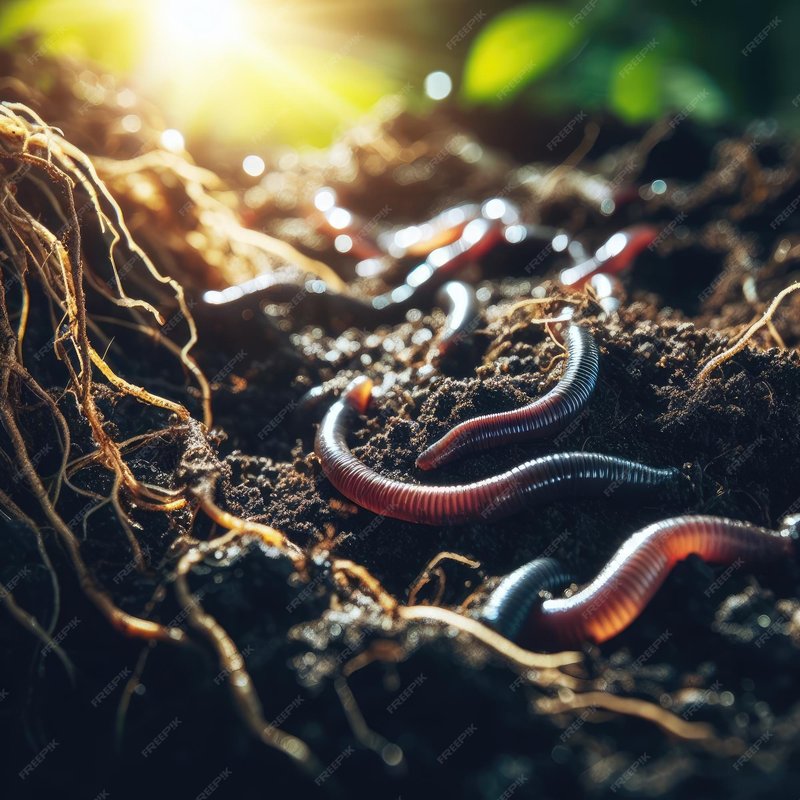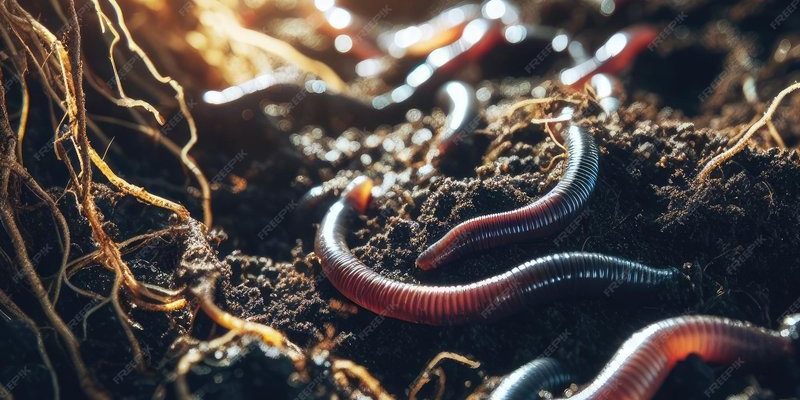
You might picture worms as squishy little animals wriggling in the dirt, but they pack a punch when it comes to how they influence soil. Just as a chef carefully selects ingredients to create a delicious dish, earthworms contribute to the recipe for rich, healthy soil. Their activities and behaviors create conditions that are simply perfect for soil microbes to thrive, ultimately benefiting the whole ecosystem. Let’s dive into how these unassuming creatures make a big difference.
Understanding Earthworms and Their Role
Earthworms are not just robust soil-dwellers; they’re vital players in the ecosystem. They help break down organic matter, like dead leaves and decaying plants. Imagine them as nature’s recyclers! When they consume this organic material, they digest it and excrete nutrient-rich waste known as castings. These castings are packed with nutrients that nourish the soil and help plants grow.
But what’s even more fascinating is how earthworms interact with soil microbes. When they burrow, they create channels in the soil, allowing air and water to penetrate deeper. This not only helps plants but also makes it easier for soil microbes to move around and do their work. In other words, earthworms make the soil a bustling metropolis for life—a bustling community that thrives on the nutrients and space they help create.
The Connection Between Earthworms and Soil Microbes
Now, let’s talk about how earthworms directly benefit soil microbial life. Soil is teeming with **microbes**—tiny bacteria, fungi, and other microorganisms that break down organic matter, recycle nutrients, and contribute to soil structure. Earthworms play a vital role in this process, and here’s how.
As worms consume organic matter, they help the microorganisms break it down even faster. Their digestive processes add life to the soil by releasing nutrients in a form that microbes can use readily. You might think of earthworms as personal trainers for microbes, motivating them to work harder and faster.
Additionally, the burrowing activity of earthworms improves soil aeration. This is essential for microbes that need oxygen to survive. A well-aerated soil can support a diverse community of microbes, enhancing their efficiency in nutrient cycling. With earthworms at work, the microbial community is healthier and more vibrant.
The Benefits of Earthworm Castings
Have you ever heard of worm castings? These little nuggets are one of the best things earthworms contribute to the soil. When worms digest organic matter, their waste—worm castings—enriches the soil with nutrients like nitrogen, phosphorus, and potassium. These nutrients are essential for plant growth and overall soil health.
What makes worm castings special is their ability to enhance microbial life. Because of their rich nutrient content, they attract beneficial microbes. It’s almost like throwing a party for microbes, where castings serve as the buffet! These thriving communities of microbes help break down more organic matter, making nutrients available for plants over time.
Moreover, worm castings can improve soil structure. They help soil hold onto moisture better, which is crucial for both plants and the microbes living in the soil. Healthy soil, filled with earthworm castings, creates a thriving ecosystem that keeps both plants and soil microbes happy.
Earthworms’ Effect on Soil Structure
When it comes to soil health, structure matters. Soil structure refers to how soil particles are arranged, which influences how air and water can move through it. Earthworms are key players in building good soil structure. Their burrowing activities create channels and pockets that allow water to flow through efficiently.
This improved drainage is beneficial for both plants and microbial life. It prevents waterlogging, which can choke out roots and negatively impact soil microbes. Plus, when it rains, those burrows help water infiltrate the soil quickly, ensuring that moisture reaches plant roots and microorganisms without becoming soggy.
Interestingly, the earthworm’s burrowing action also helps prevent soil compaction. Compacted soil can be a nightmare for plants, making it hard for roots to grow and for water to seep in. With the help of earthworms, soil remains loose and crumbly, making it a healthier home for both plants and beneficial microbes.
Promoting Biodiversity Through Earthworms
The presence of earthworms in soil doesn’t just improve conditions for themselves; they also support a diverse range of soil organisms, including a variety of beneficial microbes. Biodiversity is essential for a healthy ecosystem. Think of it as an orchestra where each type of organism plays a unique role, contributing to a harmonious environment.
When earthworms are active, they help create conditions that promote diverse microbial populations. This diversity is crucial because different microbes excel in different tasks, like breaking down organic matter or fixing nitrogen in the soil. The more diverse the community, the better equipped the soil is to handle stress, adapt to changes, and support plant growth.
Moreover, a rich microbial community can contribute to pest and disease resistance in plants. Healthy soil leads to healthy plants, and healthy plants are less susceptible to diseases. So, by promoting microbial diversity through their activities, earthworms strengthen the entire ecosystem.
Challenges and Conservation of Earthworm Populations
While earthworms are essential for healthy soil and microbial life, they face challenges. Urban development, pollution, and climate change all pose threats to their populations. If we think of earthworms as the guardians of soil health, we need to protect them to maintain our ecosystems.
What can we do? Simple actions such as reducing pesticide use, practicing organic gardening, and ensuring proper drainage can all help preserve earthworm populations. Remember to mulch! Organic mulch not only protects soil but also provides food for earthworms as it breaks down.
When we take steps to conserve earthworm populations, we’re also investing in the health of our soil and, by extension, our plants. It’s a cycle that feeds into itself, creating a healthier environment for everyone.
Earthworms might be small and often overlooked, but their impact on soil microbial life is tremendous. They’re not just wriggly little creatures in the dirt; they’re powerful allies in maintaining soil health. By enhancing soil structure, promoting microbial diversity, and enriching the soil with their castings, earthworms create a thriving environment for countless organisms.
So, the next time you see a worm creeping through your garden, remember—these tiny beings are doing big things for our ecosystem. Protecting them means protecting the intricate web of life that supports our plants, soil, and environment. Let’s celebrate their hard work and ensure they continue their essential role for generations to come.

